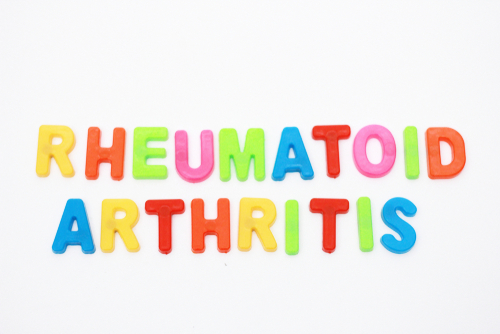
A new study examined whether obesity reduces the effectiveness of conventional synthetic or biologic disease-modifying antirheumatic drugs (csDMARDs or bDMARDs) in patients with rheumatoid arthritis (RA).
“Past studies have confirmed that the influence BMI [body mass index] exerts over RA disease activity may differ between the sexes. The association between obesity and a higher disease activity has been reported for women rather than for men, both in general terms and particularly regarding inflammation markers CRP and ESR,” the researchers noted. “To the best of our knowledge, however, no study has yet investigated the combined influence of obesity, therapy and sex on the effectiveness of commonly used DMARDs in a systematic way, taking into account the potential influence of dosage. The aim of this study was to close this gap.”
This study evaluated data from the German observational cohort study Rheumatoid Arthritis: oBservation of BIologic Therapy (RABBIT). Patients were stratified into three groups based on BMI: normal weight (BMI ≤ 18.5 kg/m2 to < 25 kg/m2), overweight (BMI ≤ 25 kg/m2 to < 30 kg/m2), and obese (BMI ≥ 30 kg/m2). Patients were enrolled between January 2009 and April 2019 upon initiating a csDMARD or bDMARD treatment; inclusion criteria included BMI ≥ 18 kg/m2, at least one follow-up, and the possibility of at least half a year of observation time.
Final analysis included 10,593 patients; most patients were female (n = 7,845), of whom 2,192 were obese. Of the 2,748 men included, 71 were obese.
Among women who received tumor necrosis factor inhibitor (TNFi) or csDMARD treatment, and all patients treated with tocilizumab, obesity adversely impacted improvement in Disease Activity Score-28 for Rheumatoid Arthritis with ESR (DAS28-ESR) after six months. The mean impact of obesity on DAS28-ESR improvement was: for women receiving csDMARDs, –0.15 units (95% CI, –0.26 to –0.04); for women receiving TNFi, –0.22 units (95% CI, –0.31 to –0.12); for women receiving tocilizumab, –0.22 units (95% CI, –0.42 to –0.03); and for men receiving tocilizumab, –0.41 units (95% CI, –0.74 to –0.07).
“This means that, for example, an obese man receiving TOC is expected to improve his DAS28-ESR by 0.41 points less over half a year after start of treatment than a non-obese man receiving the same therapy,” the study authors explained.
In obese women, the weaker DAS28-ESR response in the csDMARD group was correlated with a weaker ESR/inflammation response, and in the TNFi group it was further associated with a weaker response in terms of joint pain and the patient global health assessment. Among tocilizumab patients, there was an observed correlation between obesity and joint pain or (women only) swelling, and in men, a weaker ESR response. No correlations were observed between obesity and rituximab or abatacept efficacy.
The findings were published in Rheumatology.
The study authors concluded, “Obesity has a negative impact on the effectiveness of cytokine-targeted but not cell-targeted therapies in daily practice. This has a statistically significant effect in considerably more outcomes and therapies for women than for men.”







 © 2025 Mashup Media, LLC, a Formedics Property. All Rights Reserved.
© 2025 Mashup Media, LLC, a Formedics Property. All Rights Reserved.